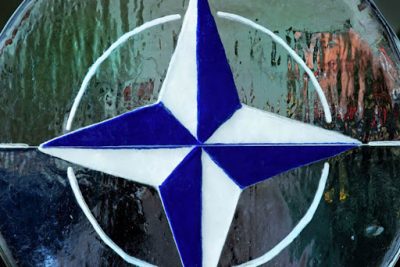5 + 3: Turkic Superstate in Caucasus, Central Asia Under NATO Tutelage

All Global Research articles can be read in 51 languages by activating the “Translate Website” drop down menu on the top banner of our home page (Desktop version).
Visit and follow us on Instagram at @crg_globalresearch.
***
The foreign minister of Kyrgyzstan, Ruslan Kazakbaev, was in the capital of Azerbaijan on July 2, where he proposed a strategic partnership between the two nations, both members of NATO’s Partnership for Peace military program and of the soon-to-be-expanding Turkic Council. (Russia also touts a strategic partnership with Azerbaijan.)
In April Kyrgyzstan was involved in a deadly border clash with Tajikistan and at the time the Turkic Council met and announced, “The Turkic Council will continue to maintain close contact with brotherly Kyrgyzstan, a founding member of the Turkic Council.”
The Turkic Council, the embodiment of present-day pan-Turkism/pan-Turanism, currently consists of Turkey, Azerbaijan, Kazakhstan, Kyrgyzstan and Uzbekistan, and has made overtures to countries as diverse as Afghanistan, Hungary, Turkmenistan and Ukraine. It is a Turkish initiative or, more accurately since the Shusha Declaration of June 15, that of the Turco-Azeri “one nation, two states” pan-Turkic entity.
Turkey’s defense minister, Hulusi Akar, recently visited Kyrgyzstan and Tajikistan.
In the visit of the Kyrgyz foreign minister to Baku on July 2, he proposed, according to Turkey’s Anadolu Agency, an alliance that many observers have anticipated since the dissolution of the Soviet Union thirty years ago: the consolidation of a bloc from the Black Sea to the Chinese border, one under Turkish and as such NATO domination (although neither would be a formal partner). In his words: “We propose the establishment of a cooperation platform between Central Asian and Southern Caucasus countries in 5+3 format [Kazakhstan, Kyrgyzstan, Uzbekistan, Turkmenistan and Tajikistan + Azerbaijan, Georgia and Armenia]. We propose to make the dialogue between Central Asian and south Caucasian countries more active.”
All eight countries are former Soviet republics. All eight are members of NATO’s Partnership for Peace. Four – Armenia, Kazakhstan, Kyrgyzstan and Tajikistan – are also members of the moribund Russian-led Collective Security Treaty Organization, which is increasingly resembling the Robert Louis Stevenson story aptly titled The Suicide Club.
The immediate effects of such an organization would be the culmination of Russia’s quarantine in former Soviet space (once Belarus is dispensed with), Turkish-dominated oil, natural gas, railroad and mineral transport corridors, the opening up of the Caspian Sea Basin to the West and the diminution of Iranian and Russian influence in that region. That enterprise was adumbrated, and heartily endorsed, by Zbigniew Brzezinski in regard to the neo-Ottoman geopolitical blueprint of now former Turkish foreign and prime minister Ahmet Davutoğlu in his 2012 volume Strategic Vision: America and the Crisis of Global Power. (Page 1361[1])
But behind those objectives, as the Shusha Declaration of Turkey and Azerbaijan foreshadows, is a military-security bloc dominated by Turkey and supported by NATO.
If the new Bucharest Nine format (Bulgaria, the Czech Republic, Estonia, Hungary, Latvia, Lithuania, Poland, Romania and Slovakia), the realization of the century-old Intermariam project to cordon Russia off from Europe, is the vertical line, the proposed 5 +3 bloc will be the horizontal one in the West’s pincer movement.
*
Note to readers: Please click the share buttons above or below. Follow us on Instagram, @crg_globalresearch. Forward this article to your email lists. Crosspost on your blog site, internet forums. etc.
Rick Rozoff, renowned author and geopolitical analyst, actively involved in opposing war, militarism and interventionism for over fifty years. He manages the Anti-Bellum and For peace, against war website
He is a Research Associate of the Centre for Research on Globalization.
Notes
[1] On the international scene, the increasingly modern and basically secular Turkey of today is beginning to attain a regional preeminence geographically derived from its imperial Ottoman past. Turkey’s new foreign policy, shaped by its geopolitically minded Foreign Minister (Ahmet Davutoğlo, the author of the concept of “Strategic Depth”), is premised on the notion that Turkey is a regional leader in the areas once part of the Ottoman Empire, including the Levant, North Africa, and Mesopotamia….Davutoğlo’s plan posits that Turkey should exploit its current socioeconomic dynamism – in 2010 it ranked as the world’s seventeenth-largest economy – to rebuild relationships that existed historically but faded during the twentieth century because of Kemalist concentration on internal secularization and inculcation of a specifically Turkish nationalism. (2012)

